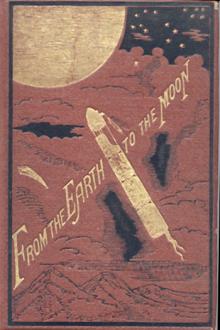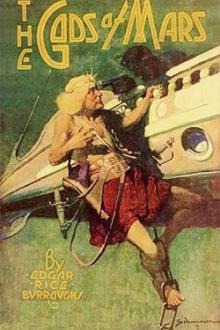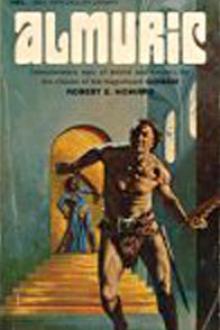Genre Science Fiction. Page - 18

he ramparts." The president was sufficiently well known, however, for all to be assured that he would not put his colleagues to discomfort without some very strong motive.
Impey Barbicane was a man of forty years of age, calm, cold, austere; of a singularly serious and self-contained demeanor, punctual as a chronometer, of imperturbable temper and immovable character; by no means chivalrous, yet adventurous withal, and always bringing practical ideas to bear upon the very rashest enterprises; an essentially New Englander, a Northern colonist, a descendant of the old anti-Stuart Roundheads, and the implacable enemy of the gentlemen of the South, those ancient cavaliers of the mother country. In a word, he was a Yankee to the backbone.
Barbicane had made a large fortune as a timber merchant. Being nominated director of artillery during the war, he proved himself fertile in invention. Bold in his conceptions, he contributed powerfully to the progress of that arm and gave an immense impetus to exper

rd part of the column. Far ahead, he knew, were the Knights Templars, who had taken the advance. Behind the Templars rode the mailed knights of Brittany and Anjou. These were followed by King Guy of Jerusalem and the host of Poitou.
He himself, Sir Robert de Bouain, was riding with the Norman and English troops, just behind the men of Poitou. Sir Robert turned slightly in his saddle. To his right, he could see the brilliant red-and-gold banner of the lion-hearted Richard of England--gules, in pale three lions passant guardant or. Behind the standard-bearer, his great war horse moving with a steady, measured pace, his coronet of gold on his steel helm gleaming in the glaring desert sun, the lions of England on his firm-held shield, was the King himself.
Further behind, the Knights Hospitallers protected the rear, guarding the column of the hosts of Christendom from harassment by the Bedouins.
"By our Lady!" came a voice from his left. "Three days out from Acre, and the accursed Saracens still elude us."
Sir Robert de

d be startled at me instead of at the other man, was too many for me; I couldn't make head or tail of it. And that she should seem to consider me a spectacle, and totally overlook her own merits in that respect, was another puzzling thing, and a display of magnanimity, too, that was surprising in one so young. There was food for thought here. I moved along as one in a dream.
As we approached the town, signs of life began to appear. At intervals we passed a wretched cabin, with a thatched roof, and about it small fields and garden patches in an indifferent state of cultivation. There were people, too; brawny men, with long, coarse, uncombed hair that hung down over their faces and made them look like animals. They and the women, as a rule, wore a coarse tow-linen robe that came well below the knee, and a rude sort of sandal, and many wore an iron collar. The small boys and girls were always naked; but nobody seemed to know it. All of these people stared at me, talked about me, ran into the huts and fetc

sult of its peculiar method of feeding, which consists in cropping off the tender vegetation with its razorlike talons and sucking it up from its two mouths, which lie one in the palm of each hand, through its arm-like throats.
In addition to the features which I have already described, the beast was equipped with a massive tail about six feet in length, quite round where it joined the body, but tapering to a flat, thin blade toward the end, which trailed at right angles to the ground.
By far the most remarkable feature of this most remarkable creature, however, were the two tiny replicas of it, each about six inches in length, which dangled, one on either side, from its armpits. They were suspended by a small stem which seemed to grow from the exact tops of their heads to where it connected them with the body of the adult.
Whether they were the young, or merely portions of a composite creature, I did not know.
As I had been scrutinizing this weird monstrosity the balance of the he

Report back!"
Diane strained her ears for possible re-transmission of the Niccola's signals, which would indicate the Plumie's willingness to try conversation. But she suddenly raised her hand and pointed to the radar-graph instrument. It repeated the positioning of dots which were stray meteoric matter in the space between worlds in this system. What had been a spot--the Plumie ship--was now a line of dots. Baird pressed the button.
"Radar reporting!" he said curtly. "The Plumie ship is heading for us. I'll have relative velocity in ten seconds."
He heard the skipper swear. Ten seconds later the Doppler measurement became possible. It said the Plumie plunged toward the Niccola at miles per second. In half a minute it was tens of miles per second. There was no re-transmission of signals. The Plumie ship had found itself discovered. Apparently it considered itself attacked. It flung itself into a headlong dash for the Niccola.
* * * * *
Time pa

buying mareridtbane for 800 gold per plant. His initial reccy had netted him five plants. That brought the total expected take from the dungeon up to 4,400 gold for 20 minutes, or 13,200 gold per hour -- which, at the day's exchange, was worth about $30, or 285 Renminbi.
Which was -- he thought for a second -- more than 71 bowls of dumplings.
Jackpot.
His hands flew over the mice, taking direct control over the squad. He'd work out the optimal path through the dungeon now, then head out to the Huoda internet cafe and see who he could find to do runs with him at this. With any luck, they could take -- his eyes rolled up as he thought again -- a million gold out of the dungeon if they could get the whole cafe working on it. They'd dump the gold as they went, and by the time Coca Cola's systems administrators figured out anything was wrong, they'd have pulled almost $3000 out of the game. That was a year's rent, for one night's work. His hands trembled as he flipp

you've got bad luck when future chance events won't go your way. Scientific investigations into this have been inconclusive, but everyone knows that some people are lucky and others aren't. All we've got are hints and glimmers, the fumbling touch of a rudimentary talent. There's the evil eye legend and the Jonah, bad luck bringers. Superstition? Maybe; but ask the insurance companies about accident prones. What's in a name? Call a man unlucky and you're superstitious. Call him accident prone and that's sound business sense. I've said enough.
"All the same, search the space-flight records, talk to the actuaries. When a ship is working perfectly and is operated by a hand-picked crew of highly trained men in perfect condition, how often is it wrecked by a series of silly errors happening one after another in defiance of probability?
"I'll sign off with two thoughts, one depressing and one cheering. A single Chingsi wrecked our ship and our launch. What could a whole planetful of them do?

versary of his single garment, belt and weapon, and transferred them to my own frame. This done, I felt some slight renewal of confidence. At least I was partly clothed and armed.
I examined the dagger with much interest. A more murderous weapon I have never seen. The blade was perhaps nineteen inches in length, double-edged, and sharp as a razor. It was broad at the haft, tapering to a diamond point. The guard and pommel were of silver, the hilt covered with a substance somewhat like shagreen. The blade was indisputably steel, but of a quality I had never before encountered. The whole was a triumph of the weapon-maker's art, and seemed to indicate a high order of culture.
From my admiration of my newly acquired weapon, I turned again to my victim, who was beginning to show signs of returning consciousness. Instinct caused me to sweep the grasslands, and in the distance, to the south, I saw a group of figures moving toward me. They were surely men, and armed men. I caught the flash of the sunlig

ring accidents, was an adventure for volunteers.
The population of the United States was stabilized at forty-million souls.
One bright morning in the Chicago Lying-in Hospital, a man named Edward K. Wehling, Jr., waited for his wife to give birth. He was the only man waiting. Not many people were born a day any more.
Wehling was fifty-six, a mere stripling in a population whose average age was one hundred and twenty-nine.
X-rays had revealed that his wife was going to have triplets. The children would be his first.
Young Wehling was hunched in his chair, his head in his hand. He was so rumpled, so still and colorless as to be virtually invisible. His camouflage was perfect, since the waiting room had a disorderly and demoralized air, too. Chairs and ashtrays had been moved away from the walls. The floor was paved with spattered dropcloths.
The room was being redecorated. It was being redecorated as a memorial to a man who had voluntee

ecrets.
After all, Theseus damn well was.
*
She'd taken us a good fifteen AUs towards our destination before something scared her off course. Then she'd skidded north like a startled cat and started climbing: a wild high three-gee burn off the ecliptic, thirteen hundred tonnes of momentum bucking against Newton's First. She'd emptied her Penn tanks, bled dry her substrate mass, squandered a hundred forty days' of fuel in hours. Then a long cold coast through the abyss, years of stingy accounting, the thrust of every antiproton weighed against the drag of sieving it from the void. Teleportation isn't magic: the Icarus stream couldn't send us the actual antimatter it made, only the quantum specs. Theseus had to filterfeed the raw material from space, one ion at a time. For long dark years she'd made do on pure inertia, hording every swallowed atom. Then a flip; ionizing lasers strafing the space ahead; a ramscoop thrown wide in a hard brake. The weight of a trillion trilli